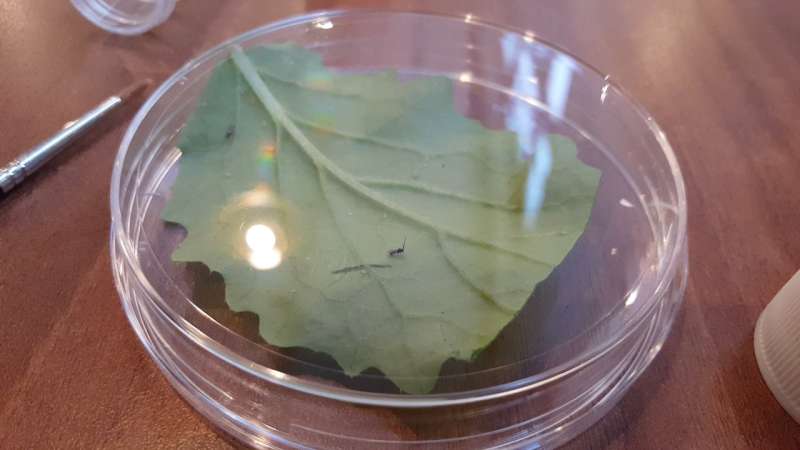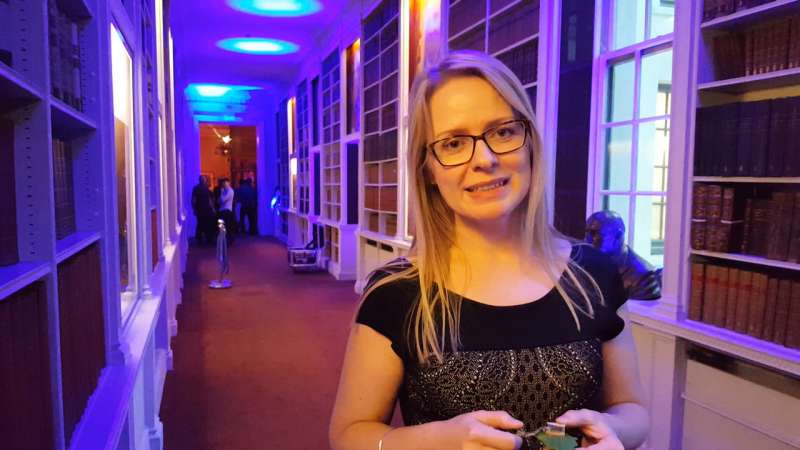Knock, knock! "Who's there?"

Insect communication, silent and often deadly, features prominently among the remarkable experiments that are performed live during the three lectures that explore "The Language of Life" for this year's Royal Institution Christmas Lectures.
The three hour-long lectures, broadcast on BBC Four at 8pm from 26 to 28 December, explore the many forms of communication by humans and other life. They are presented by Sophie Scott, Professor of Cognitive Neuroscience at University College London.
For the second lecture, "Silent Messages", Scott is joined by Gia Aradottir, an entomologist from Rothamsted Research who specialises in insect-plant interactions. The episode considers how much humans say without opening their mouths and how animals make their points without a sound.
When Aradottir appears on set, her only obvious props are a family of aphids, some cabbage leaves for them to feed on and a microscope. But then she brandishes a syringe of aphid alarm pheromone, and a tub of parasitic wasps.
"Over two experiments, I wanted to show how aphids generate chemical signals [the pheromones] to alert other aphids to predators, and how the predators can use those signals to their advantage," says Aradottir.
"And we were very lucky with how our experiments turned out, even before a live theatre audience, under bright lights and in front of TV cameras," she notes. Details of those interactions, among aphids and between aphids and wasps, must wait for the broadcast, on the 27th."What I can say is that it was a huge honour to take part in the Christmas lectures; I was probably more excited than the children in the audience," she adds. See video, My Day at the Christmas Lectures.

Aradottir's demonstrations at the Royal Institution reflect some of her current research underway in Zimbabwe where she is helping wheat farmers to find sustainable ways of protecting their crops from aphids without resorting to costly pesticides. See article, Trials to regain independence.
Provided by Rothamsted Research




















